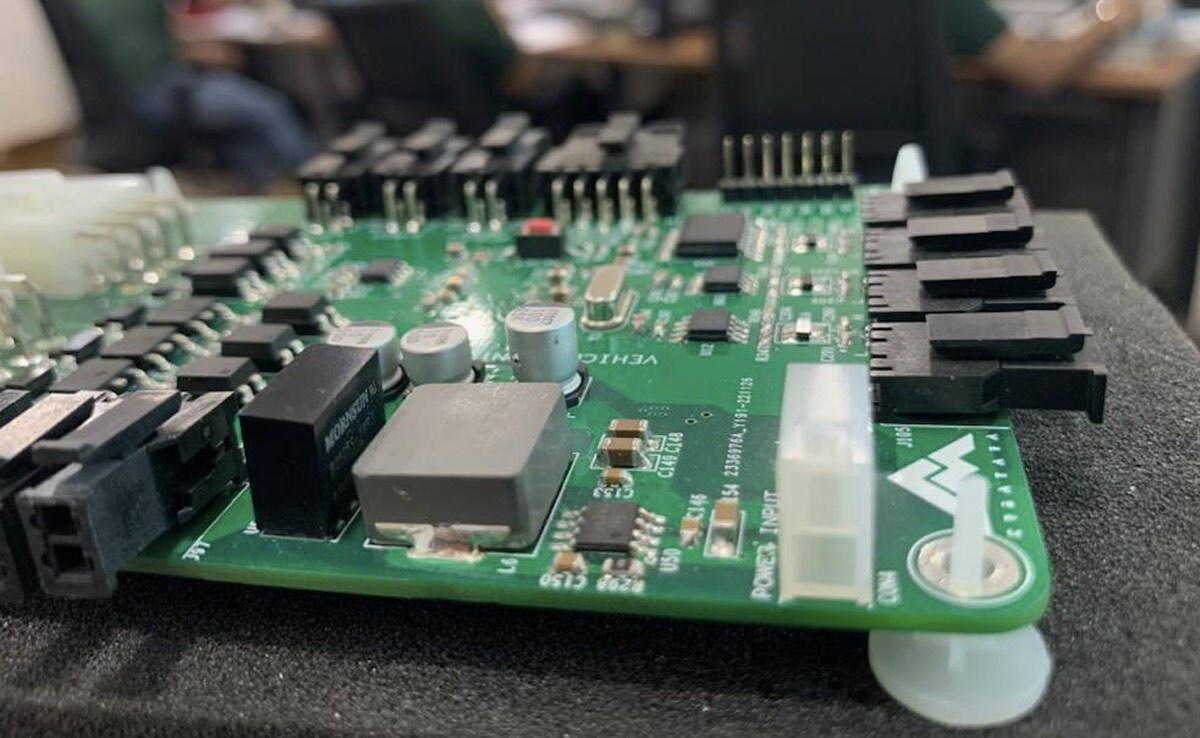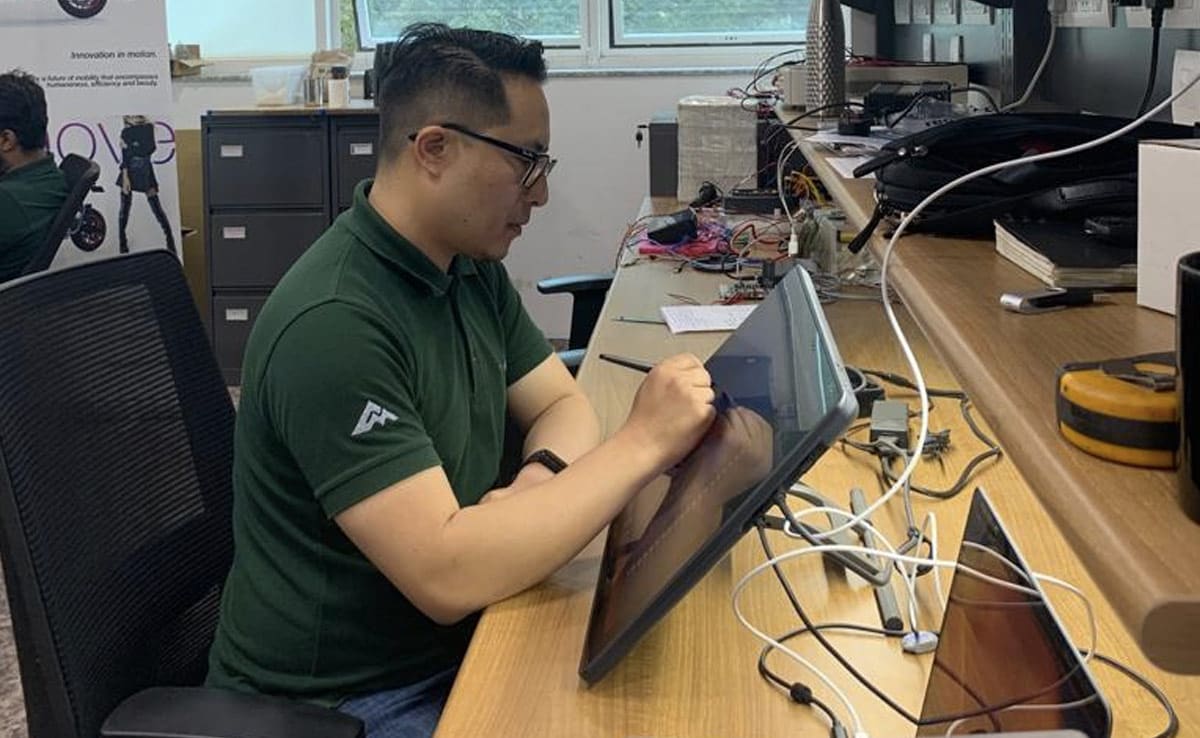Rush To Market Or Build In Haste? EV Startup At IIT-Delhi Holds Secret
In a small room at the Indian Institute of Technology’s massive innovation centre in Delhi, a group of young engineers work quietly on separate desks, tinkering and fine-tuning sections of a new electric scooter that needs the expertise of different types of engineers. One is working on the functional qualities and aesthetics using a technical drawing software, another is staring at a circuit board using a magnifying glass. The rest are also busy – there’s the chassis expert, the battery design expert, the software expert. All of them have only one goal – to build the safest electric scooter from scratch that’s also fun to drive like a motorcycle.
But Creatara Mobility, a bootstrap venture started by two engineers, is nowhere on the map amid hard funding times made even more difficult by the pandemic.
“The biggest problem we are facing is not having enough funds as a startup. We are entering a capital-intensive business and we are building a complex product from scratch,” Vikas Gupta, who co-founded Creatara Mobility with Ringlarei Pamei in 2018, told NDTV at their one-room company inside the massive IIT incubation centre. Both are alumnus of IIT-Delhi.
“We have no public relations. We are not making fancy noise. Only hard core research and development work is going on, and this is where the situation becomes difficult because it takes time to make a good electric scooter backed up by solid underpinnings like the safest battery to be used in Indian conditions,” Mr Gupta said.

Creatara Mobility co-founder Ringlarei Pamei at his workstation in the IIT-incubated startup’s office
Making safer electric scooters
Creatara Mobility doesn’t want to announce just another electric vehicle (EV) to grab eyeballs, Mr Gupta said, adding big companies with deep pockets easily glue together some plastic and questionable metal parts around a battery and call it an electric scooter in the race to enter the market anyhow without much attention to safety, as proven by incidents of batteries catching fire and suspensions breaking apart.
“We are in the testing phase and have made a couple of prototypes. We are looking at a timeline of six months to launch the scooter after certification in a limited batch production,” Mr Vikas said, adding the point is not to rush to the market like everyone else but build a good product first.
Certain features of Creatara Mobility’s electric scooter take it very close to the performance and handling characteristics of a regular motorcycle. “A lot of work has gone into the suspension and chassis design and people who know bikes will immediately like it,” said Mr Pamei, a mechanical engineer and a biker himself, who is the brain behind the overall structural design of the scooter.
He did not give more details about the key design aspects citing trade secret.

A prototype of Creatara Mobility’s electric scooter with most of the parts stripped away. The tyres are much larger than the ones used in the average electric scooter and the suspension is high-performance type
R&D comes first
However, the suspension’s angle can be changed and fine-tuned by customers easily to suit their riding style. A large portion of the scooter is customisable, as against only one or two areas that can be customised in a regular mass-market electric scooter. The battery pack comes in different sizes and can be swapped on the go – from using for neighbourhood errand rides to long-distance cruise.
“We will give the research, the product, the safest battery. But somebody has got to build it and we are looking for manufacturers,” Mr Gupta said.
The co-founder, Mr Pamei, said manufacturing a well-built, complex product from scratch and backed by good R&D in India is not an easy task. “If we wanted, we could have jumped into the market with any kind of electric scooter like everybody else,” Mr Pamei added.

Creatara Mobility is developing software and hardware interface in-house to be integrated with the scooter from the concept stage
Advanced incubation centre
Mr Gupta and his team are using an industrial grade laboratory at IIT-Delhi’s Centre for Automotive Research and Tribology (CART) to run tests on prototypes. This lab is housed at the Foundation for Innovation and Technology Transfer (FITT) building, which is also supported by the government’s Department of Science and Technology.
Creatara Mobility won the Altair Start-up Challenge in April last year for their innovative work on structural components and major systems during early product design and development phases. The startup is now backed by two angel investors, Soonicorn and NK Securities, for an undisclosed amount.


